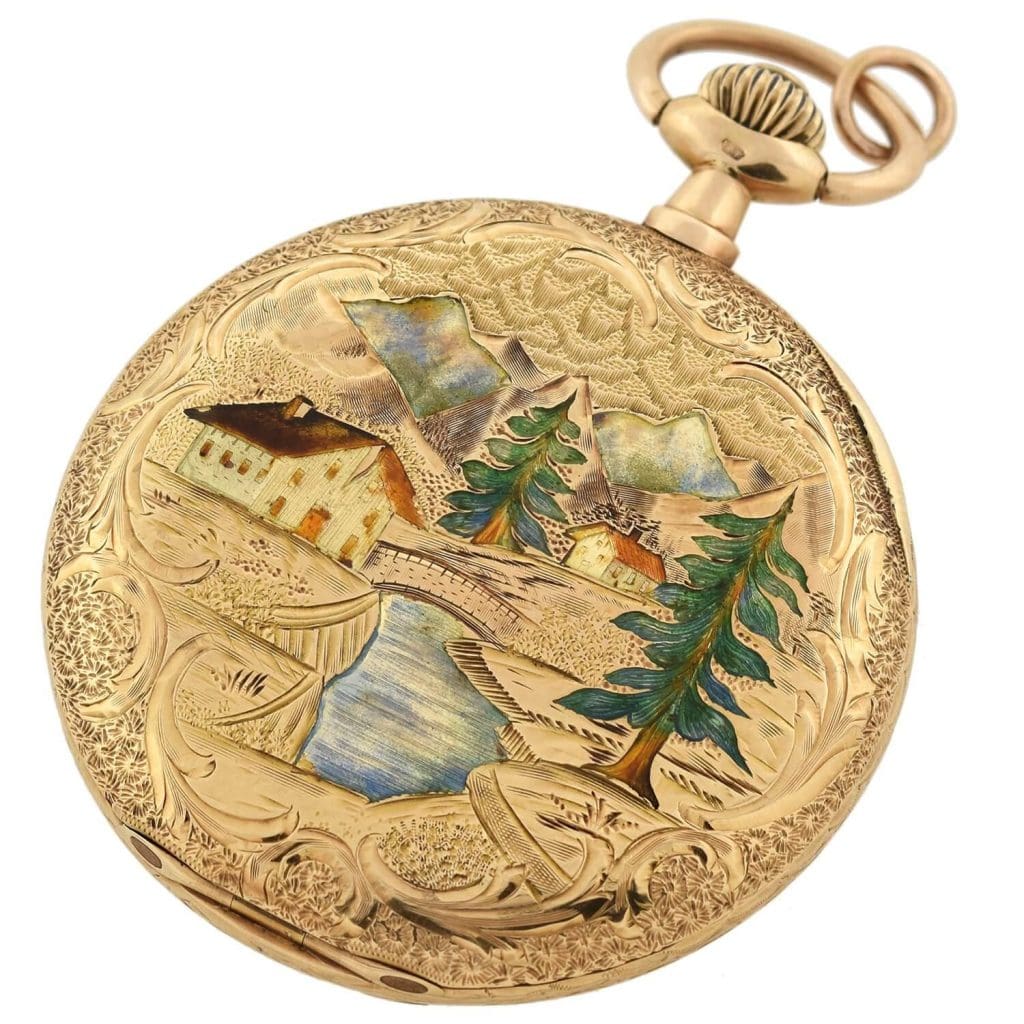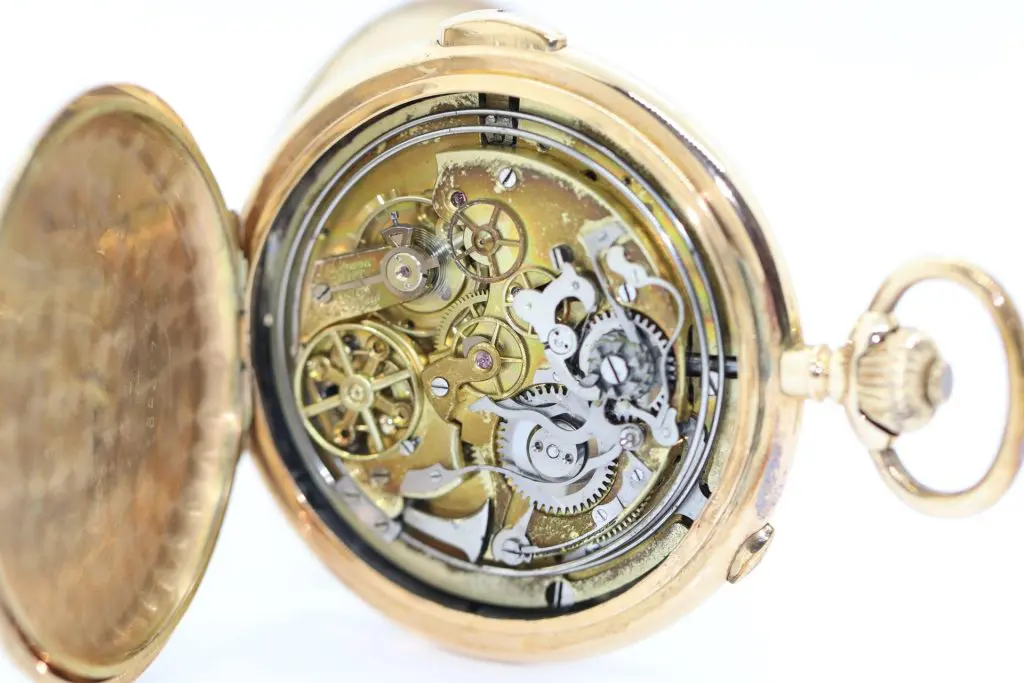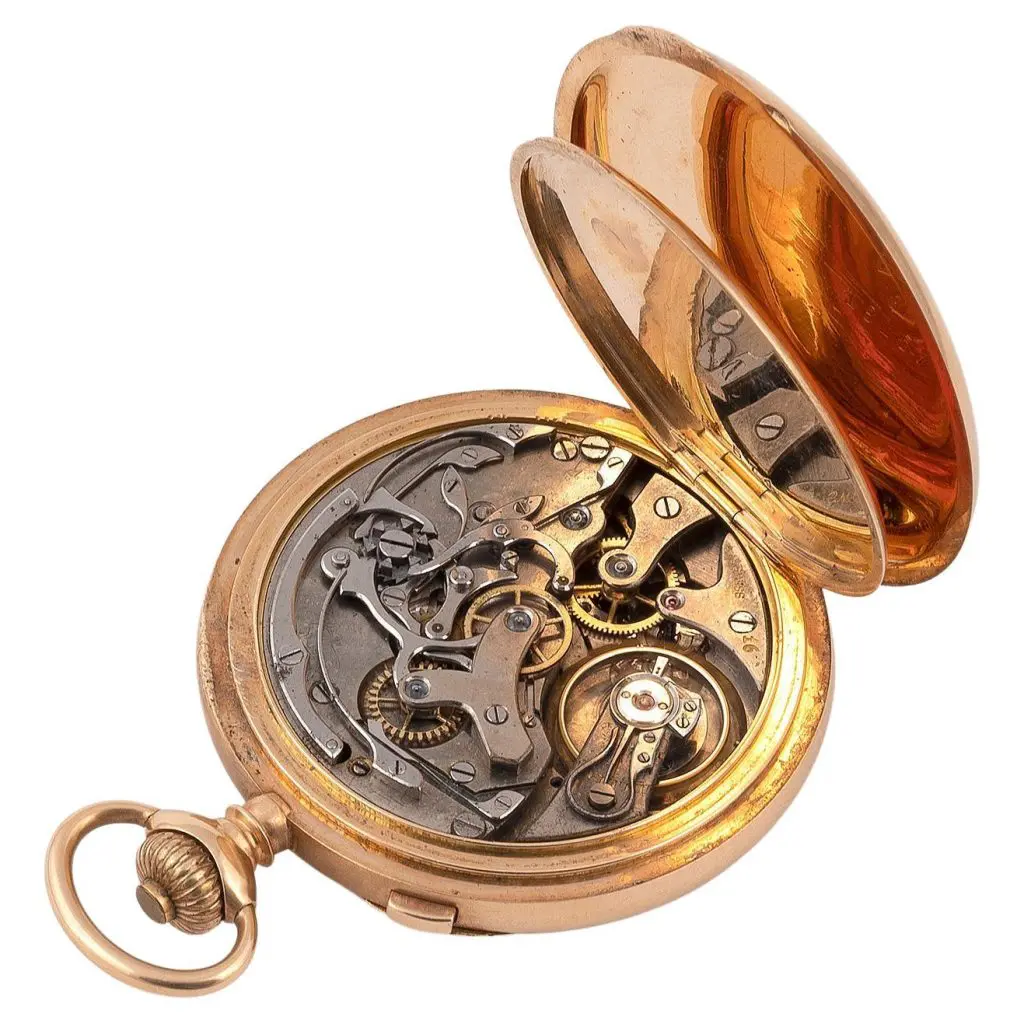Are you in the market for an antique pocket watch? The history and craftsmanship behind these timepieces make them a coveted addition to any collection. However, with so many factors to consider when purchasing an antique pocket watch, it can be overwhelming to know what to look for. In this blog post, we’ll cover everything you need to know – from determining authenticity and inspecting the condition, to choosing the right brand and storing your watch properly. Let’s dive in!
The History and Significance of Antique Pocket Watches
Antique pocket watches have been around since the 16th century and were originally a status symbol for the wealthy. These early watches were typically large and heavy, and often only had an hour hand. It wasn’t until the 17th and 18th centuries that minute hands and other features started to be added.
Pocket watches remained a popular alternative to wristwatches until the 20th century when wristwatches became more widely available and affordable. However, antique pocket watches still hold a special significance for many collectors and enthusiasts.
In addition to their aesthetic and historical value, antique pocket watches can also have significant historical significance. For example, many soldiers carried pocket watches with them in wars, and these watches are now prized possessions for military history buffs.
Overall, antique pocket watches offer a window into a bygone era and hold a special place in the world of horology and collectibles.

How to Determine the Authenticity of an Antique Pocket Watch
When purchasing an antique pocket watch, it is important to determine its authenticity to ensure that you are investing in a genuine piece and not a fake or reproduction. Here are some tips on how to determine the authenticity of an antique pocket watch:
Look for identifying marks on the watch
Genuine antique pocket watches will usually have identifying marks such as a brand name, serial number, or hallmarks indicating the quality of the materials used. Check to see if these marks are present and do some research to verify their authenticity.
Examine the materials used in the watch’s construction
Authentic antique pocket watches will be made from quality materials such as gold, silver, or high-grade steel. Examine the construction of the watch to see if the materials used are consistent with the time period in which the watch was made.
Consult with a reputable appraiser or antique dealer
If you are still unsure about the authenticity of an antique pocket watch, consider consulting with a reputable appraiser or antique dealer who specializes in watches. They can give you an expert opinion and help you determine if the watch is genuine or a fake.
By following these tips, you can ensure that you are investing in a quality antique pocket watch that is both genuine and valuable.

Factors to Consider When Choosing the Brand and Model of an Antique Pocket Watch
Choosing the right brand and model of an antique pocket watch can be a daunting task. Here are some factors to consider when making your decision:
- Reputation and History: Consider the reputation and history of the brand when choosing an antique pocket watch. Research the brand’s history and reputation to ensure that you are making a wise investment.
- Personal Style and Preferences: Choose a model that suits your personal style and preferences. Antique pocket watches come in a variety of styles, from simple and classic to ornate and decorative.
- Value: Research the value of different brands and models to help determine a fair price. Keep in mind that the value of an antique pocket watch can fluctuate depending on its condition, rarity, and historical significance.
By considering these factors, you can choose an antique pocket watch that not only fits your personal style but also provides a valuable investment opportunity.
Tips for Inspecting the Condition of an Antique Pocket Watch
Inspecting the condition of an antique pocket watch is crucial before making a purchase. Here are some key tips to follow:
1. Check the condition of the dial, case, and movement for any damage or wear.
Look closely at the face of the watch for any damage or discoloration. Examine the case for any scratches, dents, or other signs of wear. Check the movement for any signs of rust or damage.
2. Inspect the watch for any signs of repair or replacement parts, which can affect its value.
Look for signs of repair, such as new screws or replaced parts. These could indicate that the watch has been poorly serviced, which can affect its value.
3. Ensure that the watch is in working condition or be prepared to invest in repairs.
If the watch isn’t running, consider the cost of repairs before making a purchase. Repairs can be expensive, so it’s important to factor in this cost when considering the overall value of the watch.
By following these tips, you can ensure that you’re getting a quality antique pocket watch that’s worth the investment.

Understanding the Different Types of Movements in Antique Pocket Watches
Antique pocket watches can have two different types of movements: mechanical and quartz. It’s important to understand the differences between these types of movements when considering purchasing an antique pocket watch.
Mechanical Movements
Mechanical movements are what were used in most antique pocket watches. These movements require manual winding and can be more complex than quartz movements, making them more valuable as collectibles. Mechanical movements operate through a series of gears, springs, and levers, and they need to be wound regularly to keep time accurately.
When winding a mechanical antique pocket watch, it’s important to avoid overwinding, which can damage the watch. It’s also advisable to wind it at the same time each day to maintain its accuracy. Regular servicing, such as oiling and cleaning, are necessary to prevent wear and tear and to extend the life of the watch.
Quartz Movements
Quartz movements were not introduced until the 20th century, meaning that antique pocket watches with quartz movements are less common. Instead of manual winding, quartz movements use a battery as their power source and are generally less complex than mechanical movements. This makes quartz antique pocket watches less valuable as collectibles, but more accessible for everyday use.
Quartz movements are generally more accurate than mechanical movements, and require less maintenance since the battery will keep the movement running for about two years. However, when the battery dies, it must be replaced immediately, or the watch will stop running.
Overall, whether you choose a mechanical or a quartz movement, it’s important to consider the individual features of each antique pocket watch, as well as your personal preferences.
Investing in Antique Pocket Watches: Pros and Cons
Antique pocket watches can be a unique investment opportunity for those who are passionate about history and horology. However, before making a purchase, it’s important to consider the pros and cons of investing in these antique timepieces.
Pros:
- Potential for increased value over time: Antique pocket watches are known to appreciate in value over time, making them a potentially lucrative investment.
- Historical and sentimental value: Antique pocket watches often have a rich history and can hold a sentimental value for the owner.
- Unique investment opportunity: Antique pocket watches are a rare and unique investment option, offering a chance to own a piece of history.
Cons:
- Potential for depreciation in value: While antique pocket watches have the potential to appreciate in value, there is always a risk that the value could decrease over time.
- Difficulty in finding authentic pieces: With the rise of reproductions and fakes, it can be challenging to find genuine antique pocket watches.
- High cost of initial investment: Authentic antique pocket watches can come with a substantial price tag, making it a costly investment.
Before investing in an antique pocket watch, it’s important to weigh these pros and cons and carefully consider whether this investment aligns with your goals and financial situation.
Maintenance and Care for Your Antique Pocket Watch
Antique pocket watches require regular maintenance and care to keep them in good condition. Here are some tips to help you preserve your antique pocket watch:
Storage
Store your antique pocket watch in a cool, dry place away from direct sunlight and moisture. Exposure to heat and humidity can cause damage to the watch and cause it to lose accuracy.
Winding and Running
Regularly wind and run your antique pocket watch to prevent the oils from drying out and causing damage. Follow the manufacturer’s instructions for winding and running the watch, so you don’t over-wind it or force any parts.
Cleaning
Remove any dust or dirt from your antique pocket watch using a soft cloth or brush. Avoid using any harsh chemicals or abrasive materials that can scratch the watch’s surface or damage the movement. If your watch needs a more thorough cleaning, take it to a professional watchmaker for a cleaning.
Repairs
If your antique pocket watch needs repairs, don’t attempt to fix it on your own. Take it to a professional watchmaker who specializes in antique watches. They have the experience and expertise to repair your watch without causing any further damage.
By following these maintenance and care tips, you can help ensure that your antique pocket watch stays in good condition and retains its value for years to come.
Where to Buy Authentic Antique Pocket Watches
When looking to buy an authentic antique pocket watch, it’s important to do your research and purchase from a reputable seller to ensure the piece is genuine. Here are some options for buying antique pocket watches:
Reputable Antique Dealers
Specialized antique dealers offer a wide range of antique pocket watches and provide expert advice on purchasing and collecting these timepieces. Make sure to choose a dealer with a proven track record of selling genuine pieces and offering accurate appraisals.
Online Auctions and Marketplaces
The internet has made it easier to find and purchase antique pocket watches from around the world. However, caution should be taken when buying from online auctions and marketplaces, as not all sellers may accurately represent the authenticity and condition of the watch. Look for sellers with positive reviews and a proven track record to minimize the risk of buying a fake or damaged piece.
Antique Shows and Auctions
Attending antique shows and auctions can be a great way to view and potentially purchase genuine antique pocket watches. These events also provide an opportunity to speak with experts and learn more about the history and value of these timepieces.
Private Collections and Estate Sales
If you’re looking for a unique find, consider purchasing from private collections or estate sales. These sales may offer antique pocket watches that have been passed down through generations and have sentimental value, as well as potential for historical significance.
No matter where you choose to buy your antique pocket watch, make sure to do your research and seek out reputable sellers to ensure the piece is genuine and in good condition.
How to Store and Display Your Antique Pocket Watch Collection
Proper storage and display of your antique pocket watch collection is essential to prevent damage and preserve their value. Here are some tips:
- Invest in a proper display case or cabinet to protect the watches from dust and moisture.
- Ensure that the case or cabinet is in a cool, dry place away from direct sunlight.
- Consider grouping the watches by brand, era, or type of movement to create a cohesive display.
- Regularly inspect and clean the watches to maintain their condition and value.
- Take precautions when handling the watches to avoid scratches, drops, or other types of damage.
By following these guidelines, you can showcase your antique pocket watch collection in an attractive and safe manner that will maintain the watches’ value for years to come.
Conclusion
Buying an antique pocket watch is a unique and rewarding investment, but it requires careful consideration and research. Authenticity, brand and model, condition, movement, and maintenance should all be weighed before making a purchase. Despite the potential for depreciation in value, owning an antique pocket watch can be a worthwhile and sentimental investment for those who appreciate the history and significance of these timepieces.

